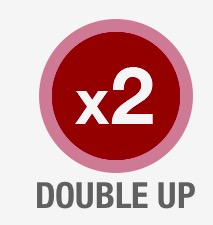
Yeomans v Buttar 2021 BCSC 1394 awarded double costs where the plaintiff’s offer to settle was not beaten by the defence.
The costs of an action in this court are generally awarded to the successful party, although the court has the discretion to order otherwise: Rule 14-1(9). However, rule 9-1 permits the court to make alternative costs awards when a party has made a formal offer to settle. Sub-rules (4),(5),(6) provide:
Offer may be considered in relation to costs
(4) The court may consider an offer to settle when exercising the court’s discretion in relation to costs.
Cost options
(5) In a proceeding in which an offer to settle has been made, the court may do one or more of the following:
(a) deprive a party of any or all of the costs, including any or all of the disbursements, to which the party would otherwise be entitled in respect of all or some of the steps taken in the proceeding after the date of delivery or service of the offer to settle;
(b) award double costs of all or some of the steps taken in the proceeding after the date of delivery or service of the offer to settle;
(c) award to a party, in respect of all or some of the steps taken in the proceeding after the date of delivery or service of the offer to settle, costs to which the party would have been entitled had the offer not been made;
(d) if the offer was made by a defendant and the judgment awarded to the plaintiff was no greater than the amount of the offer to settle, award to the defendant the defendant’s costs in respect of all or some of the steps taken in the proceeding after the date of delivery or service of the offer to settle.
Considerations of court in making an order under subrule (5), the court may consider the following:
(a) whether the offer to settle was one that ought reasonably to have been accepted, either on the date that the offer to settle was delivered or served or on any later date;
(b) the relationship between the terms of settlement offered and the final judgment of the court;
(c) the relative financial circumstances of the parties;
(d) any other factor the court considers appropriate.
In Bains v. Antle, 2019 BCCA 383, the Court set out various principles regarding any award of double costs including:
• trial judges have a broad discretion regarding costs under rule 9-1, including the discretion to award costs as if the settlement offer had not been made;
• while the judicial discretion is broad, it must nonetheless be exercised judicially and in a principled manner;
• in assessing the various cost options specified in rule 9-1(5), the court may consider the factors set out in rule 9-1(6), although these factors are not mandatory considerations;
• in considering whether the offer to settle was one that ought reasonably to have been accepted, the court does not engage in a hindsight analysis but rather assesses only the circumstances in existence at the time of the offer and not the award made at trial;
• the question is not whether the offer itself was reasonable, but whether it was unreasonable to refuse it;
• in answering this question, the court may consider the recipient’s subjective reasons for rejecting the offer, but must also decide whether those reasons are objectively reasonable;
• in assessing the reasonableness of refusing an offer, the court will consider factors such as the timing of the offer, whether it had some relationship to the claim, whether it could be easily evaluated, and whether some rationale for the offer was provided;
• the relationship of the offer to the claim is relevant because it speaks to whether a party should be penalized for proceeding to trial in hopes of achieving a more favourable outcome than what was offered;
• it is not unreasonable for a party to refuse an offer even if it is just a fraction of the amount sought, provided that party had reasonable confidence their position would prevail; and,
• if a party’s claim lacks objective evidence and is largely dependent upon the court’s assessment of the party’s credibility, there will usually be more risk in proceeding to trial such that the refusal of a reasonable offer may be considered unreasonable.
(paras. 32-37)
In C.P. v. RBC Life Insurance Company, 2015 BCCA 30, the Court of Appeal stated at paragraph 97:
Whether an offer to settle is one that ought reasonably to have been accepted, is assessed not by reference to the award that was ultimately made, but under the circumstances existing when an offer was open for acceptance… The court is entitled to take into account the reasons why a party declined to accept an offer to settle. The court must consider whether those reasons are objectively reasonable.




